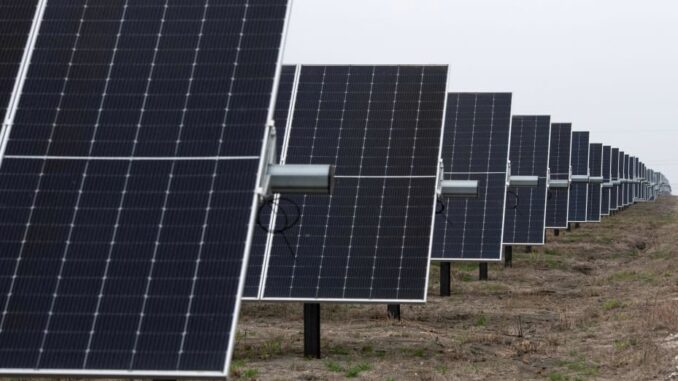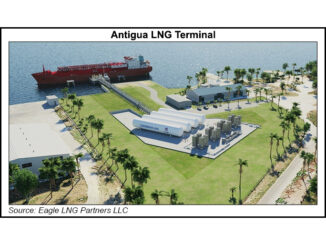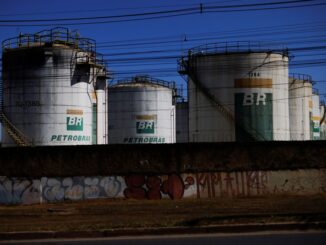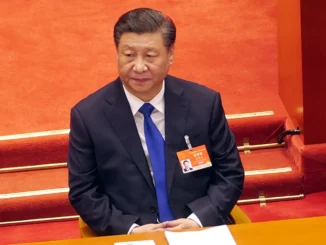
- The World Bank, Asian Development Bank, and Inter-American Development Bank Group have announced substantial increases in funding for climate mitigation and adaptation projects.
- These banks aim to become key players in supporting the green transition in Asia-Pacific and Latin America, with funding directed towards innovative climate technologies and renewable energy.
- Commitments include creating regulatory frameworks to attract private investment, pausing debt repayment during climate disasters, and establishing common approaches for reporting climate results.
Several regional development banks are responding to mounting pressure to provide climate financing to support the development of the green economy of low-income regions. This year, both the Asian Development Bank and the Inter-American Development Bank Group announced major climate investments aimed at the growth of renewable energy capacity in developing regions of the world. This is further supported by recent efforts but the World Bank Group.
Since the first COP climate summit two years ago, COP26 held in Glasgow, development banks have been facing increasing pressure to fund green energy and tech projects in much-overlooked parts of the world. And at COP28, several announcements suggested that the banks have responded to this demand. The World Bank Group announced at the summit that it was increasing its climate target to give 45 percent of its annual financing to climate-related projects in the next fiscal year. This provides around an additional $9 billion in funding for green projects, aimed principally at climate mitigation and adaptation.
In October, The Asian Development Bank (ADB) announced it planned to lend an additional $100 billion over the next 10 years. It expects to lend around $36 billion a year, marking a 40 percent increase in lending. In 2022, the ADB lent an estimated $20.5 billion for climate-related development. The bank’s plan to “relax” rules on loans is not expected to affect its AAA credit rating. Woochong Um, managing director general at ADB, stated “We looked at it and without jeopardizing our AAA we can optimize our capital adequacy framework, and be able to raise more resources to lend to the countries.” He added, “The development needs are huge and we need to make sure that we are equipped to provide financing.”
While the ADB’s lending will continue to be centred around poverty, it hopes to boost the amount of financing it provides for climate work. The ADB said that it hopes to become the climate bank of Asia and the Pacific by increasing its spending on mitigation, adaptation, and climate resilience. Significant funding will go towards new climate-related technologies and exploring cleaner transportation and weather-resistant crops. It believes that this funding goes hand in hand with the bank’s aims to alleviate poverty in the region. To attract more private funding, the ADB plans to support the creation of regulatory frameworks in countries across the region, to reduce risk and make the investment environment more attractive.
Around a month later, the Inter-American Development Bank Group (IDB Group) announced an increase in funding to Latin America and the Caribbean to $150 billion over the next decade. This would help the bank achieve three times the amount of financing it had previously earmarked for climate projects, putting it on track to meet the G20’s recommendation. The President of the IDB, Ilan Goldfajn, stated “We are placing action on climate and nature at the centre of the IDB Group… This means increasing direct and mobilized climate financing for Latin America and the Caribbean, expanding our work on global public goods, such as the Amazon, catalysing private-sector engagement and developing new financial instruments so we can mobilize more capital toward climate action.”
The IDB is the main source of long-term development financing in the region and is committed to meeting its climate mitigation and adaptation goals. The Latin America and the Caribbean region is home to the Amazon rainforest, which is one of the world’s primary carbon sinks, as well as vast green energy resources. With greater financing, the region could be propelled to become a major green energy and tech hub, helping to alleviate the burden of climate change and supporting a global green transition.
Five multinational development banks (MDBs) have now pledged to include clauses in their agreements and contracts to pause debt repayment in the case of a climate disaster, following pressure from international bodies and governments. Further, MDBs recently released a joint statement stating their commitment to establishing a common approach for reporting climate results. This will be achieved through country-level cooperation to harmonise climate indicators. They will also develop a programme to be provided via the World Bank to support countries in the development of long-term climate and development strategies and to attract private climate funding. EIB President Werner Hoyer said in a statement “This joint statement from the world’s multilateral development banks makes it clear that we have heard the calls to step up and that we have the means to deliver. Crucially, we have agreed to further strengthen our cooperation to support countries and the private sector to accelerate a green and just transition and build resilience.”
In response to mounting pressure from state governments and other official actors, several development banks have announced an increase in climate funding, aimed mainly at climate mitigation and adaptation. This funding is expected to help greater private funding to low-income regions that could be key to achieving a global green transition. Investments in green energy and technologies are also expected to spur economic growth at the national level for several countries around the globe.



